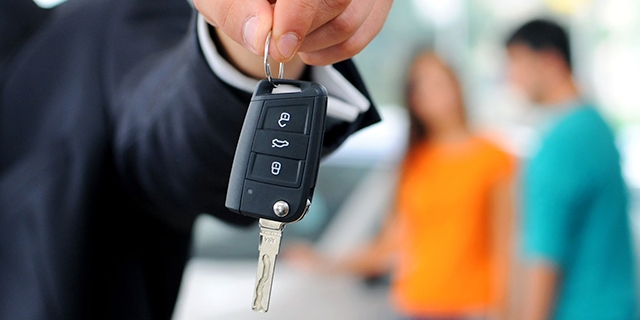Selling a car privately can be a daunting prospect, especially if you’ve never done it before and don’t know where to start. So, here’s everything you need to know in our easy to follow guide on how to sell a car.
How to advertise your car
One of the first things you’ll need to think about, is how you’re going to advertise your car. The good news is that there’s a wealth of methods to choose from, the one that works best for you will depend on a combination of factors. Think about your budget, how much time you have and how quickly you want to sell your car.
• Social media platforms – often free to advertise but the audience can be limited
• Online auction sites – some sites might be too generic, so it might be better to consider a specific car auction site. Remember to set a ‘reserve’ price to make sure you get the price you want
• Online classified sites – reach a good-sized audience genuinely interested in buying a car, but it can be difficult to make your ad stand out from the crowd
• Local classified adverts in newspapers – can be time consuming and offer a smaller, locally based audience
• Car auctions – reach an audience genuinely interested in buying a car, but they do charge a fee and bidding can be competitive
If advertising is not for you and you’re looking for a fast sale, try using a car buying site, they’re quick and easy to use and valuations can be instant. However, it’s worth researching the market value of your car, before agreeing to sell.
Information you need when you sell your car
Be as honest as you can in your advert, which by law, has to provide an accurate description of your car. To save time when it comes to queries, include the following essentials;
• Year of registration to show age of car
• Make and model
• Mileage
• Accessories and features
• Colour
• Specify whether it has a service history
• Road tax liability
Getting the best price when you’re selling a car
Talking about money can be uncomfortable so it’s best to prep before you have the inevitable ‘what’s the best you can do’ conversation with potential buyers. So, do yourself a favour and make sure you know the market value of your car.
Check out free valuation sites or see what similar makes and models of car in the same condition, are selling for. With this in mind, decide what the lowest price you’re willing to accept is. Here are some top tips on negotiating the best price for your car;
• Be reasonable – it’s all well and good having a minimum price in mind, but if no-one’s willing to pay it, then you might need to rethink
• Stand your ground – overpricing your car is one thing but if someone makes a silly offer, don’t be afraid to say no
• Listen – if a buyer raises a genuine concern, don’t simply dismiss it, chances are someone else will think the same too – answer questions and come to a compromise
• Be clear you want to sell – don’t be brusque, but make it clear that you’ve got other potential buyers
• Be accommodating – buying a car is a big deal and buyers will need time to mull over a decision, try not to scare them off by rushing them.

How to get paid
The most important part is making sure you receive what you’ve agreed, some options include;
• Cash – depending on the amount you’re asking for, this is the simplest way of getting paid (just make sure the notes are genuine and count them before your buyer leaves)
• Bank transfer – this can usually be done on the same day but there may be fees depending on your account type or bank
• Cheque – cheques take a while to clear so you’d need to come to agreement with the buyer about when the car will be handed over – asking for proof of ID and a deposit is often a good idea.
What paperwork and legal requirements are there?
As well as providing a receipt for you and your buyer, you’ll need to make sure you meet your legal obligations, such as;
• Transfer ownership – the quickest and easiest way to do this, is online at GOV.UK, or you can do it by post using the V5C logbook
• Cancel tax – car tax is not transferable so you’ll need to cancel this and get a refund, the buyer is then responsible for taxing the car
• Provide certificates and manuals – provide any MOT certificates, manuals, service history details and any receipts for work carried out on the car.
Avoiding fraud
Be careful not to fall into any traps when it comes to fraudsters and anyone with less than good intentions – here are some top tips to avoiding fraud and staying safe;
• If in doubt, ask for ID
• Don’t be tricked into paying upfront shipping fees for buyers that live abroad – it’s often a scam
• Don’t ever give out personal details such as passwords or credit card details to alleged car selling sites
• Trust your instincts, if something doesn’t feel right, it usually isn’t
• Try and have someone with you when potential buyers visit
• Try not to leave the house empty if you go on a test drive with buyers – they could be working in partnership with someone who then scopes out your house
• If a buyer wants to test drive the car, go with them and only hand over the keys when you’re safely in the car too
• Check the buyer is insured to test drive the car, or make sure your policy covers them.
Updating your insurance policy
If you’re selling your car and buying yourself a new pride and joy, you’ll need to update your car insurance policy so it’s always worth checking out the different insurance groups before you buy.
Once you’ve made your choice you can quickly and easily compare car insurance with mustard.co.uk either online or over the phone on 0330 022 8816.








